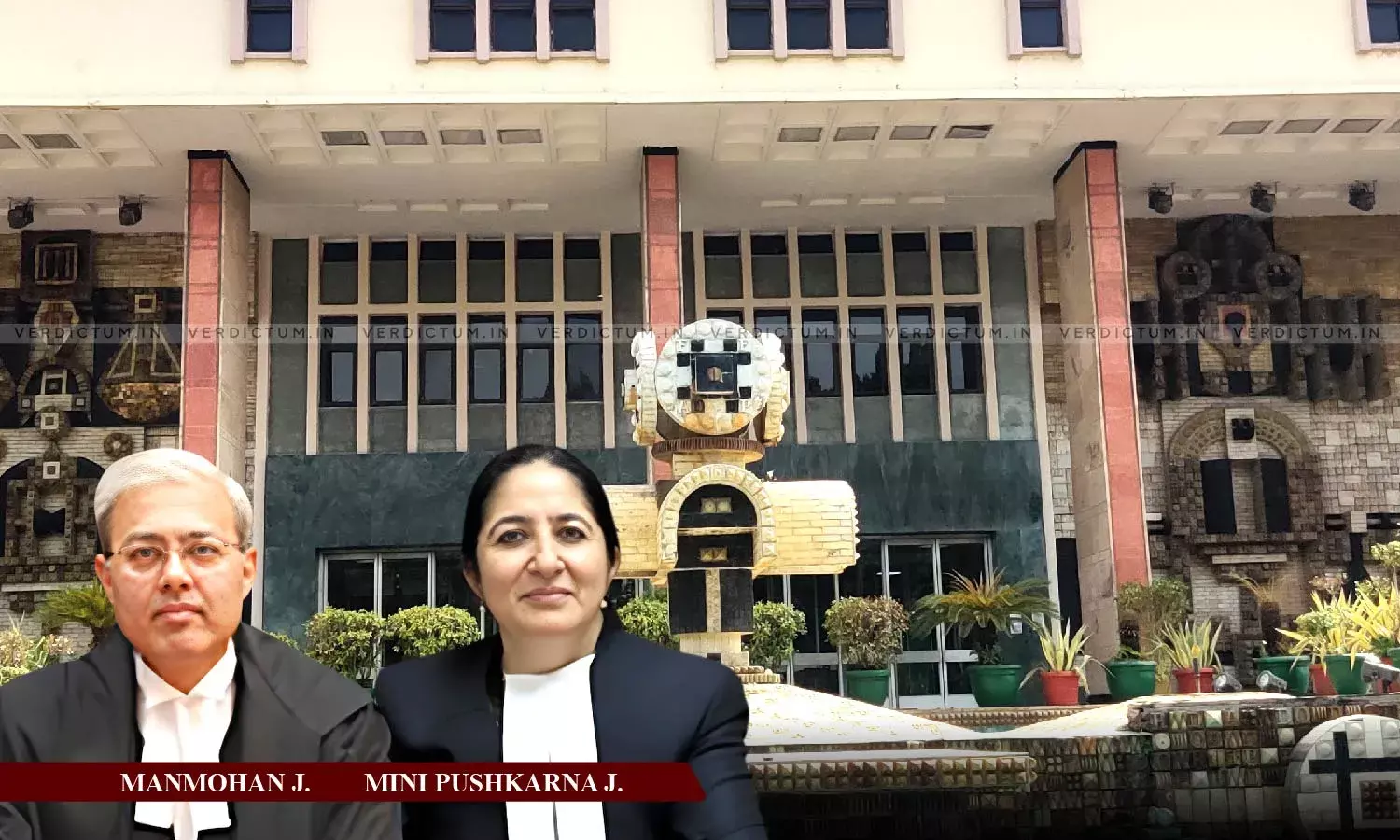If Disciplinary Authority Agrees With Enquiry Officer, It Is Not Supposed To “Cut And Paste” The Said Reasoning: Delhi High Court

The Delhi High Court has held that if a Disciplinary Authority agrees with the Enquiry Officer, it is not supposed to “cut and paste” the said reasoning as it is sufficient if it states that it agrees with the same.
An appeal was filed against the judgment passed by the Single Judge whereby the writ petition of the appellant (petitioner) was dismissed and the orders passed by the respondents for suspension and termination of services of the appellant were upheld.
A Division Bench comprising Justice Manmohan and Justice Mini Pushkarna observed, “As far as non-furnishing of reasons by the Disciplinary Authority is concerned, this Court is of the view that if the said Authority agrees with the reasoning of the Enquiry Officer and is of the view that it cannot improve upon the same, the Disciplinary Authority is not supposed to “cut and paste” the said reasoning. It is sufficient if the Disciplinary Authority states that it is in agreement with the finding of the Enquiry Officer – as has been done in the present instance.”
Advocate Zahid Hanief represented the appellant while Senior Advocate Raj Birbal, Standing Counsel Avnish Ahlawat, and Advocate Taniya Ahlawat represented the respondents.
In this case, the counsel for the appellant stated that the appellant’s services were terminated without there being any evidence on record and that the relevant material was not considered by the Enquiry Officer and irrelevant material was taken into account. He stated that the burden of evidence was erroneously shifted by the Enquiry Officer to the employee instead of the employer.
It was further submitted that contrary to Regulation 7(7) of Delhi Electric Supply Undertaking, DMC, (Service, Control and Appeal) Regulations 1976, the Enquiry Officer had not recorded findings and conclusions separately with regard to each charge in the matter. It was also contended that the Single Judge failed to appreciate that the appellant was a municipal employee to whom the Delhi Municipal Corporation Regulation Rules (DMC Rules) and Delhi Municipal Corporation Act, 1957 (DMC Act) were applicable and the Appointing and the Disciplinary Authority were not competent under the DMC Act.
The High Court in the above context referred to the judgment of the Supreme Court in the case of Allahabad Bank v. Krishna Narayan (2017) 2 SCC 30 and said that it offers no assistance to the appellant as in the said case, the Apex Court had found that the enquiry was found vitiated on account of violation of principles of natural justice and the courts below had found no allegation or evidence to show loss, if any, suffered by the Bank.
The Court, therefore, noted, “However, in the present case, the appellant who was a Telephone Operator had not only written an application for replacement of meter on behalf of the consumer Shri Gaurav Jindal, but also without jurisdiction/authority had obtained a meter being Meter No.82501 from Shri S.K.Bansal, Junior Engineer for replacement of stop meter of Shri Anurag, wherein subsequently a stolen meter was installed, whereas Meter No.82501 was installed at G7/112, Sector-15, Rohini for unauthorized use of electricity. It is pertinent to mention that service of Shri S.K.Bansal, Junior Engineer had also been terminated by respondent no.2-Tata Power Delhi Distribution Limited.”
Accordingly, the High Court dismissed the appeal.
Cause Title- Brij Mohan v. Govt of NCT of Delhi & Ors. (Neutral Citation: 2023:DHC:6760-DB)


